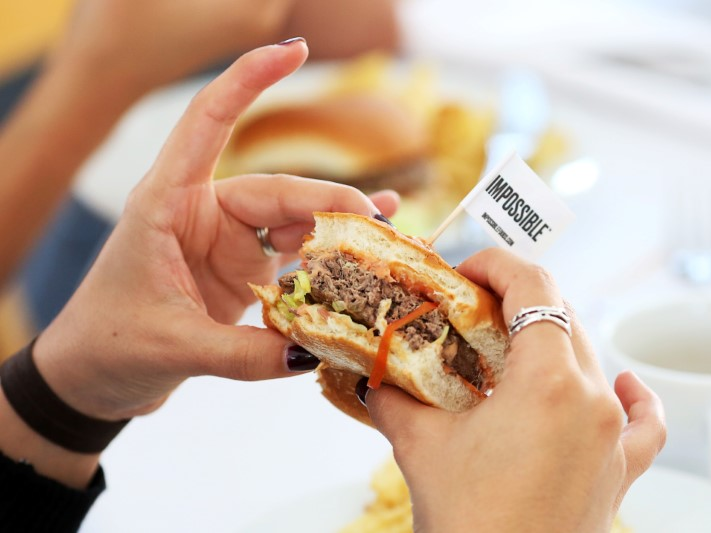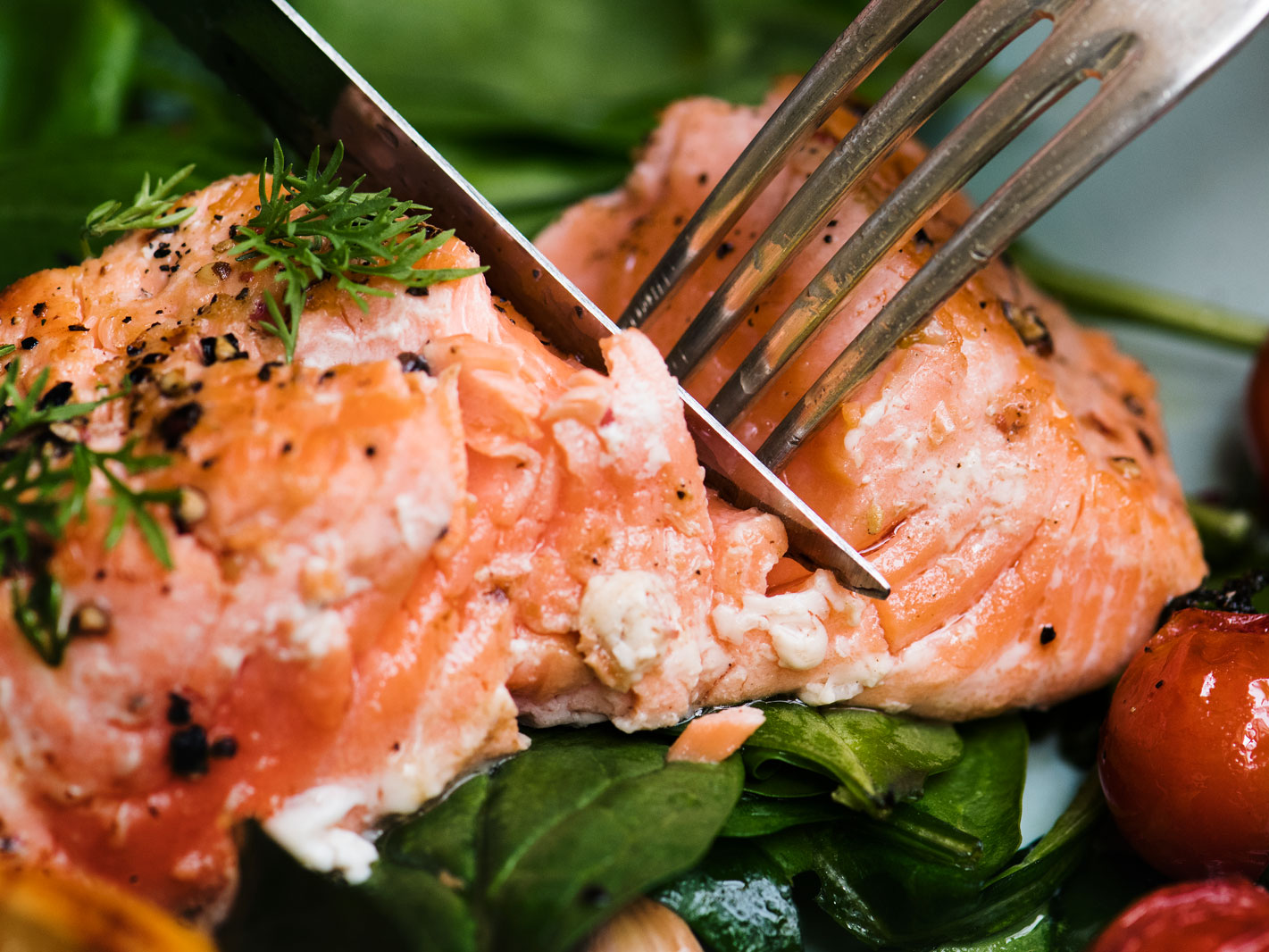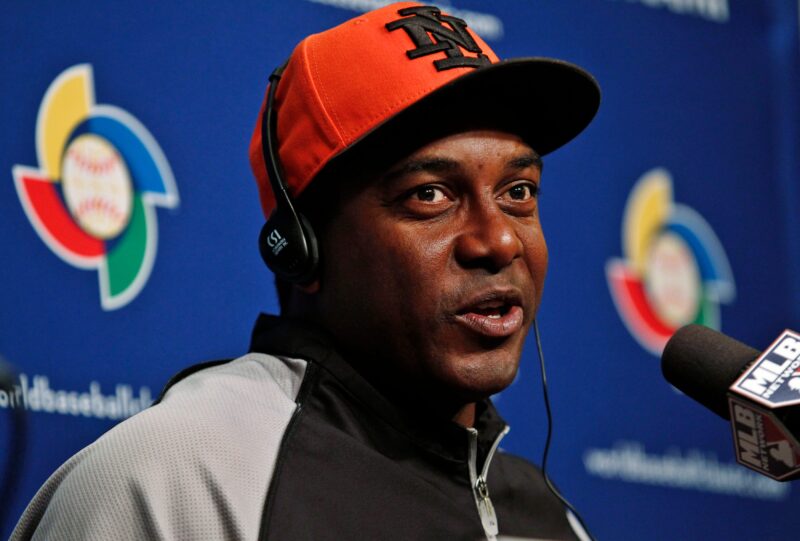- Impossible Foods is reportedly in the process of developing artificial fish made in a laboratory.
- The brand has already found its way into Burger King restaurants across the country, as well as Cheesecake Factory and Applebee’s, with its “bleeding” plant-based burgers.
- Impossible Foods employees have already been able to recreate the flavor of anchovy in a broth solely using plants.
- Visit INSIDER’s homepage for more stories.
Impossible Foods has become one of the biggest names in the booming world of alternative meats, and now the plant-based meat company is diving into the fishless fish market.
The brand, which has already found its way into Burger King, Cheesecake Factory, and Applebee’s restaurants across the country with its “bleeding” plant-based burgers, is now in the process of developing artificial fish made in a laboratory, according to The New York Times.

Impossible Foods plans to work off of its existing plant-based beef recipe to create the fishless fish. The company currently uses heme, a molecule found in human and animal blood, to give its “beef” virtually identical taste and texture qualities to real meat.
"The only way we can succeed," Impossible Foods chief executive Pat Brown told The Times, "is to make fish from plants that is more delicious than the fish that's strip mined from the ocean."
The brand has long conveyed its intention to delve into other synthetic meats beyond its Impossible Burgers, going as far as setting a goal to create a meat-free alternative for every animal-based food product by 2035. And now Impossible Foods is closer than ever to developing its next plant-based food.
Employees at the company told The Times that they have successfully used plant materials to recreate the flavor of anchovy in broth form.
"It was being used to make paella," Brown said. "But you could use it to make Caesar dressing or something like that."
Impossible Foods is not the first company to break into the fishless fish market. Whole Foods currently sells a plant-based tuna product from the company Good Catch that is made with pea and soy proteins.
With naturally-occurring fish becoming a less reliable resource due to overfishing, Impossible Foods' large-scale fishless fish efforts have the potential to make waves in both the fish market and across the world's oceans.
Still, whether consumers will take to fake fish the way they have embraced Impossible Burgers and its competitors remains to be seen. Although vegetarianism and veganism may appear to be on the rise, "fewer than one in 10 Americans report that they adhere to such diets" and the numbers have changed by very little since 2012, according to a 2018 Gallup poll.
Impossible Foods did not immediately respond to INSIDER's request for comment.
- Read more:
- Photos show what the 'American' food aisle looks like in grocery stores around the world
- 22 photos that show what it's like to eat at the lavish Swiss restaurant voted the world's best by private jet fliers
- A woman has been banned from Walmart after she reportedly ate half a cake in the store and then refused to pay full price
- Jack in the Box will serve 'Tiny Tacos' that come in boxes with special dipping sauces











